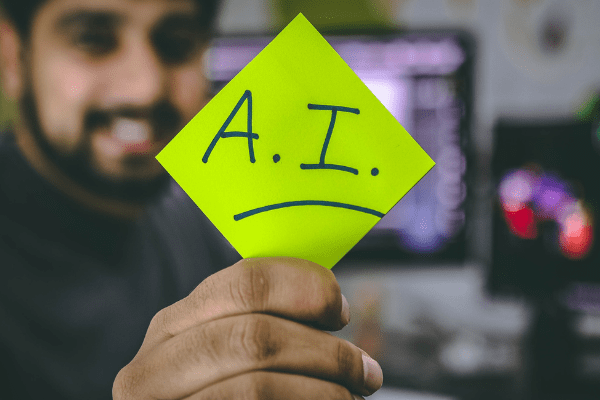 1. AI and Analytics integrated with electronic health records (EHRs) will deliver actionable insights for superior care delivery and personalized care at a lower cost for Healthcare Providers.
1. AI and Analytics integrated with electronic health records (EHRs) will deliver actionable insights for superior care delivery and personalized care at a lower cost for Healthcare Providers.
Thanks to the meaningful use stipulations of the Affordable Care Act, a majority of the healthcare systems in North America have made significant investments in EHRs. These deployments have often been multi-year initiatives often running over time and over cost, not unlike enterprise resource planning (ERP) deployments in other industries. While EHRs have helped hospitals create a central repository of their clinical and financial data, extracting accurate, reliable and actionable analytics for right time decision-making is a daunting challenge.
Leading healthcare organizations have deployed next-generation analytics platforms to deliver actionable insights integrated into their EHR’s clinical workflows to empower their executives, clinicians and nurses at the POC. In 2019 and beyond, they will bolster this by integrating machine learning and NLP algorithms to enable predictive analytics powered patient risk stratification, proactively identify the most at-risk patients likely to overstay their length of stay and at risk of 30-day re-admissions.
Machine learning and NLP integrated with next-generation Analytics will also enable researchers and clinicians to identify variances in genomic profiles from new born patients to personalized treatment protocols. This will help drive the appropriate clinical care protocols and care coordination to ensure higher quality at a lower risk and cost.
2. Healthcare Payers will integrate AI with their ERP and Analytics to improve health outcomes while saving millions from fraud, waste and abuse.
Integrating AI and analytics will enable care managers to proactively identify patient conditions and improve the quality of their engagement with them, as well the relevant information to collect from them. Virtual AI powered agents or bots can rapidly respond to customer questions re: coverage and services and potentially help improve the overall customer experience. Machine learning and natural language processing (NLP) can help proactively identify fraud, waste and abuse pertaining to claims processing and save healthcare payers millions.
3. Pharma, Medical Devices and Diagnostics companies will leverage AI and Analytics to deliver new drugs and improve diagnostics and minimally invasive surgeries.
AI, including machine learning and deep learning, algorithms can help pharma companies identify new indications for previously failed formulations to potentially deliver drugs for diseases like Parkinson’s, Alzheimer’s and dementia. The onerous task of trials and errors to match drug interventions with individual patients can be automated with machine learning. Neural networks currently being leveraged for autonomous vehicles will find potential application in structure-based drug design by combining atoms virtually to come up with potential molecules that can treat diseases aligned with their biological origins.
Medical diagnostics and devices companies will be one of the largest adopters of AI and analytics for automated medical diagnoses for cancer and cardiovascular diseases. Using machine learning enabled scanning of radiology images to autonomous/remote surgery using robots, but endowed with superior machine vision, can make minimally invasive surgeries safer and most cost-effective, while assuring faster recuperation for patients.
4. AI and Analytics will help policy makers tackle the Opioid Epidemic in North America through actionable intelligence.
The United States is in the throes of an unprecedented opioid epidemic with more than 2 million Americans addicted to prescription pain pills and similar drugs. During 2016, there were more than 63,600 overdose deaths in the United States, including 42,249 that involved an opioid (66.4 percent). That’s an average of 115 opioid overdose deaths each day.
Challenges to the Convergence of AI and Analytics in Enabling Innovation
The most significant challenge to delivering on the innovations above is the somewhat silo-ed approach to innovation deployment and delivery. The notion of AI partnering with analytics to deliver actionable insights that will enable prediction and prescription for rapid decision-making, as well as automation of manually repetitive tasks, is still a work in progress and not necessarily intuitive.
My prediction for 2019 is that next-generation analytics platforms will embed simple machine learning, natural language generation (NLG) and NLP capabilities that will enable executives, line of business leaders, clinicians, nurses and analysts to automate repetitive tasks. It will also empower them with predictive, and perhaps even prescriptive, actionable insights from the board room to the point-of-care (POC), enabling rapid decision-making with life-saving impact – from drug innovation and delivery, rapid diagnostics and minimally invasive surgeries, to precision medicine, value based care, chronic disease management, as well as fraud, waste and abuse detection.

















